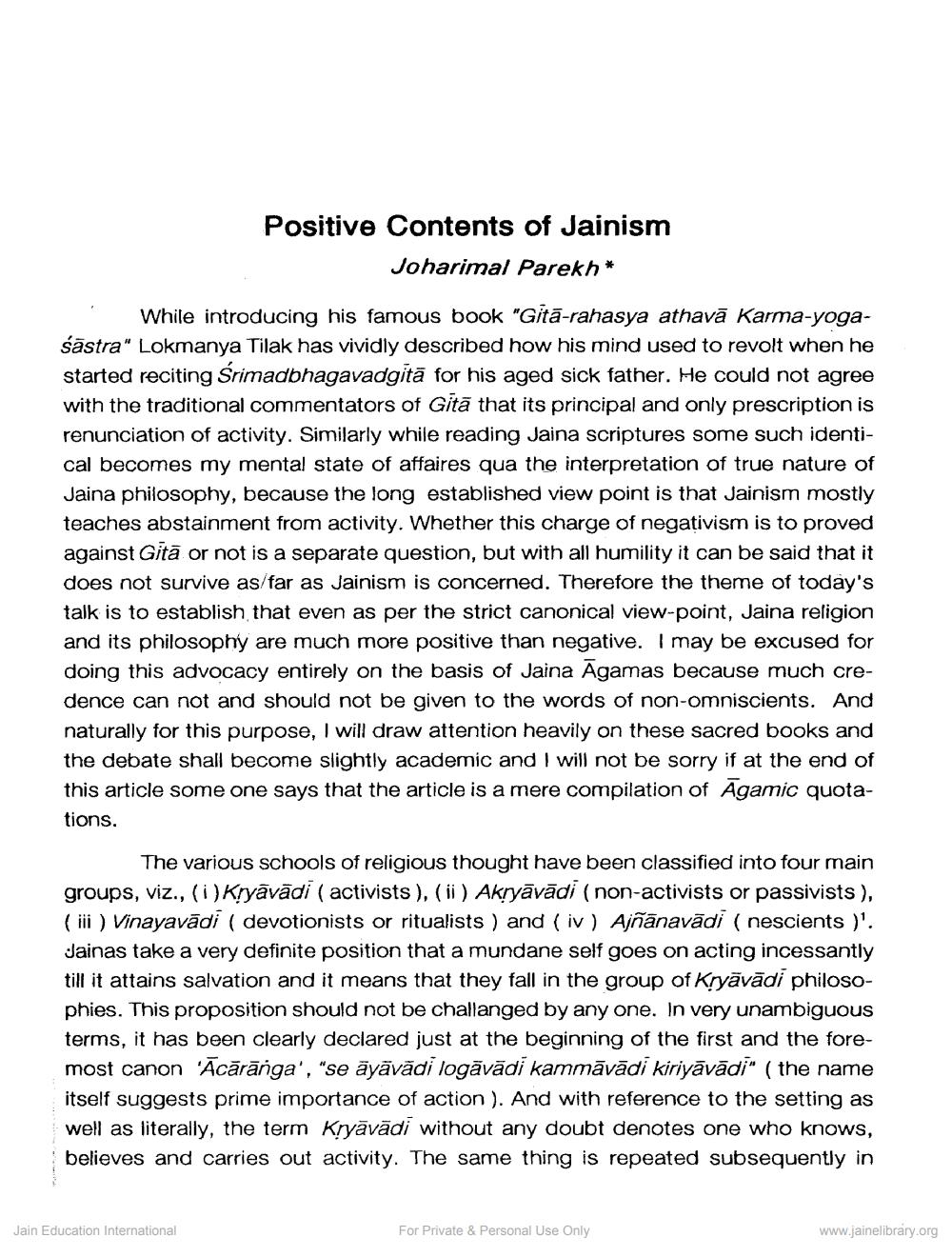Book Title: Positive Contents of jainism Author(s): Joharimal Parikh Publisher: Z_Parshvanath_Vidyapith_Swarna_Jayanti_Granth_012051.pdf View full book textPage 1
________________ Positive Contents of Jainism Joharimal Parekh * While introducing his famous book "Gitā-rahasya athavā Karma-yogaśāstra" Lokmanya Tilak has vividly described how his mind used to revolt when he started reciting Srimadbhagavadgitā for his aged sick father. He could not agree with the traditional commentators of Gitā that its principal and only prescription is renunciation of activity. Similarly while reading Jaina scriptures some such identical becomes my mental state of affaires qua the interpretation of true nature of Jaina philosophy, because the long established view point is that Jainism mostly teaches abstainment from activity. Whether this charge of negativism is to proved against Gitā or not is a separate question, but with all humility it can be said that it does not survive as/far as Jainism is concerned. Therefore the theme of today's talk is to establish that even as per the strict canonical view-point, Jaina religion and its philosophy are much more positive than negative. I may be excused for doing this advocacy entirely on the basis of Jaina Agamas because much credence can not and should not be given to the words of non-omniscients. And naturally for this purpose, I will draw attention heavily on these sacred books and the debate shall become slightly academic and I will not be sorry if at the end of this article some one says that the article is a mere compilation of Agamic quotations. The various schools of religious thought have been classified into four main groups, viz., (i) Kryāvādi (activists ), (ii) Akryāvādi (non-activists or passivists), (ili ) Vinayavādi ( devotionists or ritualists ) and (iv) Ajñānavādi (nescients )'. Jainas take a very definite position that a mundane self goes on acting incessantly till it attains salvation and it means that they fall in the group of Kryāvādi philosophies. This proposition should not be challanged by any one. In very unambiguous terms, it has been clearly declared just at the beginning of the first and the foremost canon 'Acārānga', "se āyāvādi logāvādi kammāvādi kiriyāvādi" (the name itself suggests prime importance of action ). And with reference to the setting as well as literally, the term Kyāvādi without any doubt denotes one who knows, believes and carries out activity. The same thing is repeated subsequently in Jain Education International For Private & Personal Use Only www.jainelibrary.orgPage Navigation
1 2 3 4 5 6 7 8 9 10 11 12 ... 15
